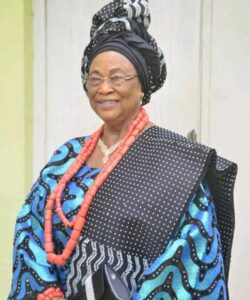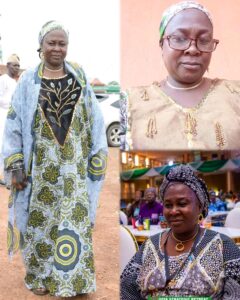
By Richard Akinnola
I don’t have the details of the portions of Dele Farotimi’s book on Nigeria’s criminal justice system that irked revered Chief Afe Babalola, SAN who claimed he was defamed.
Chief Babalola is one Nigerian that l hold in the highest esteem.
When Wole Soyinka came out of General Gowon’s gulag, he wrote his epic book -“THE MAN DIED”.
However, sometime in 1978, Alhaji Femi Okunnu, a Minister under the Yakubu Gowon regime, instituted a N500,000 libel suit against Professor Wole Soyinka over certain portions of Soyinka’s book “The Man Died”, the prison memoirs of Soyinka, as they related to him (Okunnu).
Professor Soyinka had written “The Man Died” shortly after his release from detention in 1969. The book was published in 1970 by the London Publishers, Pex Collings and Company. It was a caustic account of Soyinka’s one year, nine months in detention.
Soyinka had been detained by the Gowon administration over his roles during the civil war. The Gowon administration had accused Soyinka of maintaining contact with Chief Emeka Ojukwu who was leading a secession against Nigeria. Soyinka was alleged to be supporting Ojukwu.
While Soyinka admitted to making contacts with Ojukwu, but that it did not amount to acts detrimental to Nigeria’s government’s interest.
The title of the book ‘The Man Died’ came from the contents of a telegram message sent to him by a friend who was reporting the case of a tortured Nigerian journalist who was beaten on the orders of a military governor during the Gowon regime.
The telegram said in part “And the man died.”
Evocative as it is pungent, the book has been compared to the French writer, Victor Serge and his “Man in Prison” and many such accounts of prison experiences.
In the book, apart from highlighting the roles played by some key
elements in Gowon administration, Soyinka recreates the minute details of prison life, the attempts to break the mind and spirit within the confines of solitary confinement and the challenges posed by prison conditions.
In sections of the book, he mockingly recreates dialogues with wall geckos and cockroaches which slip into his prison room at precise moments of the day.
But a major section the book was devoted to seemingly personal attacks on the major actors of the civil war. Those who argue that the war was more than a clash of personal interests say that “The Man Died” hardly transcends such narrow confines.
It was on the basis of these personal attacks that Alhaji Okunnu decided to take Soyinka to court for libel.
In his judgment on January 31, 1984, Justice Candide-Ademola Johnson held that in pages 71 and 72 of the book, Alhaji Okunnu was portrayed as a tricky and dubious character.
Justice Candide-Johnson however stated that he was satisfied that “the matters that motivated the comments are matters of public interest.
“A lot of wrong doings were perpetrated during the Gowon regime. He (Okunnu) was part and parcel of that regime and he never raised any eyebrow over the activities of the government” said Justice Ademola-Johnson.
He therefore held that the pleas of “fair comment” in those areas by Professor Soyinka had been established.
In view of the observations of the judge that many of the passages complained about were fair comments and looking at the totality of the write-up as it concerned the plaintiff, Alhaji Okunnu, Justice Ademola-Johnson awarded a paltry N250.00 (Two Hundred and Fifty Naira) as damages against Soyinka, amounting to the lowest libel damages in the legal history of Nigeria.
The judge also awarded N100.00 (One Hundred Naira) damages against the publishers.
It is with this background that l look at the face-off between our highly revered Chief Babalola and Dele Farotimi over alleged defamation in some parts of Farotimi’s book. While it is within the personal choice of individuals to choose one’s cause of action, I think with the age (90 plus) and the unblemished legal practice of Chief Babalola, resorting to the police to literally ambush and more or less abduct Dele, instead of towing the path of Alhaji Okunnu against Soyinka by suing for defamation, would have been an ideal move. Now, attention would be shifted from the alleged defamation to the brute force used by the police in apprehending Dele Farotimi.
Aare Babalola doesn’t need this at the twilight of his life.







![[PHOTOS] Engr. Nurudeen Adeyemi Balogun Visits APC National Secretary](https://newsbulletin.com.ng/wp-content/uploads/2026/01/1769627828939-300x300.jpg)

